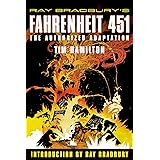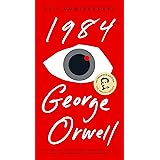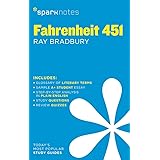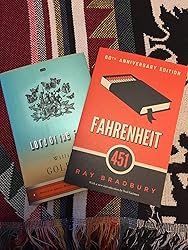
Enjoy fast, free delivery, exclusive deals, and award-winning movies & TV shows with Prime
Try Prime
and start saving today with fast, free delivery
Amazon Prime includes:
Fast, FREE Delivery is available to Prime members. To join, select "Try Amazon Prime and start saving today with Fast, FREE Delivery" below the Add to Cart button.
Amazon Prime members enjoy:- Cardmembers earn 5% Back at Amazon.com with a Prime Credit Card.
- Unlimited Free Two-Day Delivery
- Streaming of thousands of movies and TV shows with limited ads on Prime Video.
- A Kindle book to borrow for free each month - with no due dates
- Listen to over 2 million songs and hundreds of playlists
- Unlimited photo storage with anywhere access
Important: Your credit card will NOT be charged when you start your free trial or if you cancel during the trial period. If you're happy with Amazon Prime, do nothing. At the end of the free trial, your membership will automatically upgrade to a monthly membership.
Buy new:
-51% $8.36$8.36
Ships from: Amazon.com Sold by: Amazon.com
Save with Used - Acceptable
$7.50$7.50
Ships from: Amazon Sold by: Murfbooks

Download the free Kindle app and start reading Kindle books instantly on your smartphone, tablet, or computer - no Kindle device required.
Read instantly on your browser with Kindle for Web.
Using your mobile phone camera - scan the code below and download the Kindle app.

OK
Image Unavailable
Color:
-

-
-
- To view this video download Flash Player
 Audible sample Sample
Audible sample Sample 


Fahrenheit 451 Paperback – January 10, 2012
There is a newer edition of this item:
Purchase options and add-ons
Guy Montag is a fireman. His job is to destroy the most illegal of commodities, the printed book, along with the houses in which they are hidden. Montag never questions the destruction and ruin his actions produce, returning each day to his bland life and wife, Mildred, who spends all day with her television “family.” But when he meets an eccentric young neighbor, Clarisse, who introduces him to a past where people didn’t live in fear and to a present where one sees the world through the ideas in books instead of the mindless chatter of television, Montag begins to question everything he has ever known.
- Print length249 pages
- LanguageEnglish
- Lexile measure890L
- Dimensions5.5 x 0.8 x 8.44 inches
- PublisherSimon & Schuster
- Publication dateJanuary 10, 2012
- ISBN-109781451673319
- ISBN-13978-1451673319
100 Sci-Fi & Fantasy Books to Read in a Lifetime
Unleash your mind with these 100 extraordinary science fiction and fantasy books. Learn more
Frequently bought together
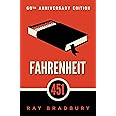
Similar items that may deliver to you quickly
 We stand against the small tide of those who want to make everyone unhappy with conflicting theory and thought.Highlighted by 9,086 Kindle readers
We stand against the small tide of those who want to make everyone unhappy with conflicting theory and thought.Highlighted by 9,086 Kindle readers “That’s the good part of dying; when you’ve nothing to lose, you run any risk you want.”Highlighted by 6,140 Kindle readers
“That’s the good part of dying; when you’ve nothing to lose, you run any risk you want.”Highlighted by 6,140 Kindle readers “Those who don’t build must burn. It’s as old as history and juvenile delinquents.”Highlighted by 5,023 Kindle readers
“Those who don’t build must burn. It’s as old as history and juvenile delinquents.”Highlighted by 5,023 Kindle readers
From the Publisher



|
|
|
|
|---|---|---|
|
|
|
|
Editorial Reviews
Review
“A masterpiece . . . A glorious American classic everyone should read: It’s life-changing if you read it as a teen, and still stunning when you reread it as an adult.” —Alice Hoffman, The Boston Globe
“The sheer lift and power of a truly original imagination exhilarates . . . His is a very great and unusual talent.” —Christopher Isherwood, Tomorrow
“One of this country’s most beloved writers . . . A great storyteller, sometimes even a mythmaker, a true American classic.” —Michael Dirda, The Washington Post
About the Author
Excerpt. © Reprinted by permission. All rights reserved.
by
Ray Bradbury
March 12, 2003
What is there new to be said about Fahrenheit 451? I have written three or four introductions in the past thirty years trying to explain where the novel came from and how it finally arrived.
The first thing to be said is that I feel very fortunate to have survived long enough to join with people who have been paying attention to the novel in this past year.
The novel was a surprise then and is still a surprise to me.
I've always written at the top of my lungs and from some secret motives within. I have followed the advice of my good friend Federico Fellini who, when asked about his work, said, "Don't tell me what I'm doing, I don't want to know."
The grand thing is to plunge ahead and see what your passion can reveal.
During the last fifty years I have written a short 25,000-word early version of the novel titledThe Fireman, which appeared in Galaxy Science Fiction magazine, and several years later added another 25,000 words for its publication by Ballantine Books.
Occupying a house with a new baby daughter, we had to consider my trying to find somewhere that was a bit quieter to do my work. I had no money at that time to rent an office, but wandering around U.C.L.A. one day I heard typing in the basement of the library and went down to see what was going on. I found that there was a room with twelve typewriters that could be rented for ten cents per half hour. Excited at the prospect, I brought a bag of dimes with me and moved into the typing room.
I didn't know what the various students were writing at their typewriters and they hardly knew, nor did I know, what I was writing.
If there is any excitement to the novel at all, I think it can best be explained by the fact that every two hours or so during the next week and a half I ran up- and downstairs and in and out of the stacks, grabbing books off the shelf, trying to find proper quotes to put in the book. I am not a researcher and my memory is not all that accurate for things that I've read in the past, so the quotes that you find in the book were those wonderful accidents where pulling a book off the shelf and opening it just anywhere at all I found an amazing sentence or paragraph that could occupy a position in the novel.
This early version took exactly nine days and I spent $9.80 on it, not realizing that the book had some sort of long life ahead.
In the years since its first publication I have written a full two-act play and spent two summers in Connecticut writing an opera based on its text. The book seems to have a life that goes on re-creating itself.
If I try to find its genesis in the years prior to 1950 I would imagine one would turn to certain stories like "Burning Bright" and a few other tales that appeared in my early books.
The main thing to call attention to is the fact that I've been a library person all of my life. I sold newspapers until I was twenty-two and had no money to attend college, but I spent three or four nights a week at the local library and fed on books over a long period of time.
Some of my early stories tell of librarians and book burners and people in small towns finding ways to memorize the books so that if they were burned they had some sort of immortality.
The main surprise for the book occurred when I wrote the short story "The Pedestrian" in 1949.
I had been accosted by the police one night while I walked on a Los Angeles street with a friend. The police wanted to know what we were doing, when walking was our aim and talking occupied us.
I was so irritated by being stopped and asked about walking that I went home and wrote the story, "The Pedestrian," concerning a future where pedestrians were arrested for using the sidewalks.
Sometime later, I took the Pedestrian for a walk and when he turned a corner he encountered a young girl named Clarisse McClellan who took a deep breath and said, "I know who you are from the smell of kerosene. You're the man who burns books."
Nine days later the novel was finished.
What a wonderful experience it was to be in the library basement to dash up and down the stairs reinvigorating myself with the touch and the smell of books that I knew and books that I did not know until that moment.
When the first version of the novel was finished, I hardly knew what I had done. I knew that it was crammed with metaphors, but the word metaphor had not occurred to me at that time in my life. It was only later in time when I got to know the word and realized that my capacity for collecting metaphors was so complete.
In the years of writing my two-act play and the opera that followed, I let my characters tell me things about their lives that were not in the book.
I have been tempted to go back and insert these truths in the old text, but this is a dangerous practice which writers must refuse. These truths, while important, could ruin a work done years before.
In writing the play my Fire Chief, Beatty, told me why he had become a burner of books.
He had once been a wanderer of libraries and a lover of the finest literature in history. But when real life diminished him, when friends died, when a love failed, when there were too many deaths and accidents surrounding him, he discovered that his faith in books had failed because they could not help him when he needed the help.
Turning on them, he lit a match.
So that is one of the fine things that came out of the play and the opera. I'm glad to be able to speak of it now and tell you what Beatty had in his background.
After the book was published, in the following years I've had hundreds of letters from readers asking me what became of Clarisse McClellan. They were so intrigued with this fascinating, strange, and quixotic girl that they wanted to believe that somewhere out in the wilderness with the book people she had somehow survived.
I resisted the temptation to bring her back to life in future editions of my novel.
I left it to François Truffaut in his film version of Fahrenheit 451 in 1966 to give Clarisse a return to life, even though he had changed her name and given her extra years of maturity, which at the time I thought was a great mistake. But she did survive to the end of the film and at that time I decided that Truffaut was correct.
When I wrote the first version of the play I allowed Clarisse to survive among the book people in the wilderness. The same practice occurred when I wrote the opera.
She was too wonderful a character to be allowed to die and I realize now that I should have allowed her to appear at the end of my book.
That being said, the book is complete and untouched. I will not go back and revise anything. I have a great respect for the young man that I was when I sat down in that basement room with a bag of dimes and plunged into the passionate activity that resulted in the final work.
So here, after fifty years, is Fahrenheit 451. I didn't know what I was doing, but I'm glad that it was done.
Introduction for this edition copyright © 2003 by Ray Bradbury
Product details
- ASIN : 1451673310
- Publisher : Simon & Schuster; Reissue edition (January 10, 2012)
- Language : English
- Paperback : 249 pages
- ISBN-10 : 9781451673319
- ISBN-13 : 978-1451673319
- Reading age : 15+ years, from customers
- Lexile measure : 890L
- Item Weight : 2.31 pounds
- Dimensions : 5.5 x 0.8 x 8.44 inches
- Best Sellers Rank: #409 in Books (See Top 100 in Books)
- #5 in Classic American Literature
- #13 in Classic Literature & Fiction
- #67 in Literary Fiction (Books)
- Customer Reviews:
Videos
Videos for this product

0:39
Click to play video

Fahrenheit 451 by Ray Bradbury, paperback
Aliex Folgueira

Videos for this product

2:00
Click to play video

About a world where books are banned.
Book Chat Live

About the author

In a career spanning more than seventy years, Ray Bradbury, who died on June 5, 2012, at the age of 91, inspired generations of readers to dream, think, and create. A prolific author of hundreds of short stories and close to fifty books, as well as numerous poems, essays, operas, plays, teleplays, and screenplays, Bradbury was one of the most celebrated writers of our time. His groundbreaking works include Fahrenheit 451, The Martian Chronicles, The Illustrated Man, Dandelion Wine, and Something Wicked This Way Comes. He wrote the screen play for John Huston's classic film adaptation of Moby Dick, and was nominated for an Academy Award. He adapted sixty-five of his stories for television's The Ray Bradbury Theater, and won an Emmy for his teleplay of The Halloween Tree. He was the recipient of the 2000 National Book Foundation Medal for Distinguished Contribution to American Letters, the 2004 National Medal of Arts, and the 2007 Pulitzer Prize Special Citation, among many honors.
Throughout his life, Bradbury liked to recount the story of meeting a carnival magician, Mr. Electrico, in 1932. At the end of his performance Electrico reached out to the twelve-year-old Bradbury, touched the boy with his sword, and commanded, "Live forever!" Bradbury later said, "I decided that was the greatest idea I had ever heard. I started writing every day. I never stopped."
Customer reviews
Customer Reviews, including Product Star Ratings help customers to learn more about the product and decide whether it is the right product for them.
To calculate the overall star rating and percentage breakdown by star, we don’t use a simple average. Instead, our system considers things like how recent a review is and if the reviewer bought the item on Amazon. It also analyzed reviews to verify trustworthiness.
Learn more how customers reviews work on AmazonReviews with images
-
Top reviews
Top reviews from the United States
There was a problem filtering reviews right now. Please try again later.
This is one of the most unique dystopian novels I have read and is right up there with H.G. Wells with its incredible philosophical insight into human society, what makes us tick individually and as a group and how it could all go incredibly wrong if mankind, as a group, makes incorrect choices along the pathway leading into the future. What makes this book incredibly scary is how horribly possible it all is and how awful the black cloud of illiteracy and ignorance is and how it limits people's choices and abilities to progress and grow. All this being said, however, this book does end on an optimistic and hopeful note which is invigorating and uplifting, especially given the momentous issues that are currently staring mankind in the face like climate crisis and the fourth industrial revolution.
Guy Montag is a fireman, whose job involves the destruction of books and the belongings and homes of people who go against the law of the nation and keep and read books. The reader is introduced to Guy in a happy state of enjoyment over his current burning and you get the impression that he is happy and fulfilled in his life and his work.
Coming out of the train station at the end of his work shift, Guy meets Clarice, an unusual young woman who is a thinker. The reader quickly realises that she is incredibly unique in this time of book burning and technological dominance over creativity, thinking and, in essence, the spirit of man. Guy listens to what Clarice has to say, nothing specific, but a series of innocent ramblings with enough substance to make him think. She ends the evening by asking him if he is happy. Is he happy? As this leading question and an immediate and alarming set of circumstances in his home life, cause Guy Montag to consider the meaning of his whole life and the lives of those around him, he realises that he is not happy in his lifestyle of forced gaiety and non-conflict. He also comes to see that no-one else around him is happy either and that their lifestyles are meaningless and also emotionless.
The beauty of this story is in it unerring ability to make the reader question his/her existence and the meaning of life. In the same manner as HG Wells depicted the Eloi, in his book The Time Machine, as being human creatures who have evolved into childlike and uninspired creature through living a Utopian type existence where there every need is met and there exists no conflict or hardship or anything else to spark thinking, innovation and progress. I saw parallels in the thinking process between HG Wells and Ray Bradbury and the recognition that a perfect Utopian environment would ultimately lead to the downfall of mankind as it would strip away our survival skills and instincts and we would not be able to cope with the resurgence of conflict and evil which is always bound to reappear in life. Perfection can only ever be a thin veneer over the underlying issues inherent in societies and human interaction which each other.
This is an exceptional book and an inspired story.
Ray Bradbury has a way of writing in such a way that you can visualize each description. This book is a bit haunting as some of the reasons behind each action are stuff we are seeing now. Great book.
These firemen are sanctioned by what one can only conclude to be a dystopian government to burn books, as well as the houses they are contained within. In this future world, the government has deemed books as dangerous, containing ideas that run counter to the narrative they wish to form and broadcast via televisions that cover entire walls within people’s homes. And the people want this, as they feel more comfortable with their government fed information. How dystopian indeed.
Reminds one of the behavior of the Roman Catholic Church during the Dark Ages. The two have book burning in common, as well as burning Bibles (in the case of the RCC, Bibles that didn’t subscribe to their criteria – even though they came from source material originating from the same authors). No offense to Catholics – some Protestant sects weren’t much better (like the early Anglicans who destroyed much of the Church’s property, including relics, as did Orthodox Christians during the Iconoclast Era).
Montag takes quite apparent joy in his job, causing a smile to overcome his face every time he gets to burn those devilish books. That is, until he becomes intrigued by a young neighbor girl named Clarisse. Clarisse is a female character that many feminists sadly overlook as to her importance in the overall arc of the story. Good on Bradbury for taking this approach, as you know what they say – “behind every great man, there’s an even greater woman”. This doesn’t always have to imply a spouse, mind you, and Bradbury exploited this fact while using Montag’s lame wife as a great contrast.
Clarisse is somehow able to tap into Montag’s emotional capacity to better understand what exactly his job is harming, and how his otherwise dull life (including dull wife who serves as a great example of the brainwashed zombie like people of his society) could become so much more enriched by. This confrontation with not only Clarisse – but himself – causes a sort of psychosis for our villainous protagonist. And thus begins his character development that makes the book really begin to take off and hook the reader into the protagonist’s story arc and growth.
At first, Montag struggles with his newfound understanding of the profound beauty of books. He is intrigued by the sense of wonder, emotion, and timelessness that books have to offer compared to the mind numbing talking heads that rule the day (sounds similar to our times with all the political talking heads telling how people should think, unlike books that allow people to draw their own conclusions). Yet he is still skeptical, resisting this newfound understanding as he continues in his line of work.
He challenges the notion of books being a net positive for society along the way, including challenging protectors of books along the way. All of this amidst some unknown war going on in the background of the story that is never really described in much detail. I assume that Bradbury himself had assumed (living in the days of the Cold War between the US and the USSR) that some kind of war of that magnitude coming to fruition was sadly somewhat inevitable.
As his change of heart is occurring, he struggles with his chief named Beatty (the antagonist of the story). Beatty is a walking contradiction, as he is full of knowledge pertaining to the books they burn. He is so well versed in their content by heart, yet seeks to eliminate books from existence on behalf of the government.
Unlike Montag who simply found pleasure in his destructive line of work, Beatty knows full well every reason and intention as to why they do and takes pleasure in doing so. This, all while being so well versed in the knowledge and insights contained within them. He overall sees them as dangerous, yet behaves as if the type of knowledge contained within books should be reserved for elites rather than the average citizen. This antagonist displays the kind of pretentious attitude that perfectly captures what it means to convey the notion of a dystopian society within a book of this genre.
After trials and tribulations in his struggle, Montag reaches a point where he is so moved by the message of a particular book, that he even steals it so that he can preserve it himself. As a Christian myself, I personally loved that this book just so happened to be a Bible. Why does Montag take such a personal infatuation with the Bible?
It may be that Montag’s society is so lost that when bombs begin to fall toward the end, whatever Montag had read might help him and others rebuild society for the better. After all, the Bible is full of advice, and provides direction for moral and ethical enrichment. Certainly a new society would need guidelines to rebuild and improve over mistakes made in the past.
Montag refers to the book of Job at one point in the story, as well as references made about Caanan. At the end, Montag even tries to recall parts of the books of Ecclesiastes and Revelation. The book of Revelation itself (arguably my favorite book of the Bible – I’m a fan of the dystopian genre after all) deals with the end of times. Although, perhaps Montag failed to recall this as quickly as he might because they are preparing to start a new life when the world appears to be ending.
The novel ends with Montag escaping the city in the midst of this new war. He escapes deep into the countryside, meeting a band of roving intellectuals who have elected to preserve significant works of literature in their memory. Reminds me of the Vaudois, the Waldenses and the Albigenses who preserved the original books of scripture in spite of the persecution they suffered from the RCC.
Not long after these roving intellectuals welcome Montag into their community, an atomic bomb falls on the city and reduces it to rubble. The next morning Montag leads the men on foot back toward the city with rebuilding in mind. The novel’s conclusion functions to bring the prevalent violence to its logical conclusion, which is that violence infiltrates nearly every aspect of the world our protagonist finds himself in.
The firemen violently destroy people’s property and lives. Television displays gruesome, desensitizing violence for viewers’ entertainment. Pedestrians regularly get trampled by speeding vehicles. Finally, war takes these forms of violence to a new extreme, destroying society and its infrastructure altogether. The novel’s ending depicts the inevitable self-destruction of such an oppressive society in such an effective, and rather melancholy fashion.
As stated in the beginning of the Fahrenheit 451 book review, this book is one of my all time favorites. It’s no wonder as to why I give it a 5/5 rating. Bradbury’s use of language is lyrical, yet not overly forceful. He paints a picture of a world in which we as a society should wish to avoid – in a multifaceted way.
When it comes to dystopian books, this is truly a classic – and for good reason. Not only was it tremendous back in its heyday; it has stood the test of time, proving to be of use to us nearly 70 years later. I absolutely love Fahrenheit 451, and I believe you would too if you love dystopian fiction and have happened to somehow not have read it yet (it happens – later is better than never though!).






